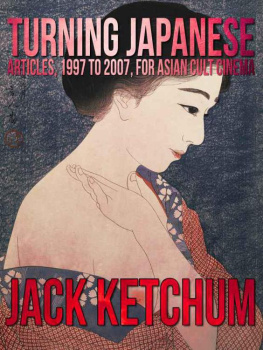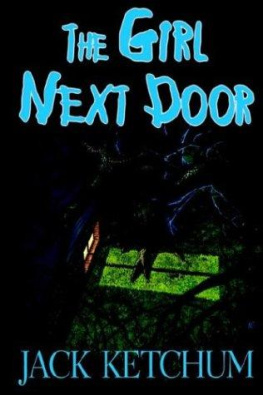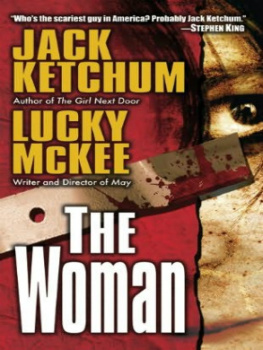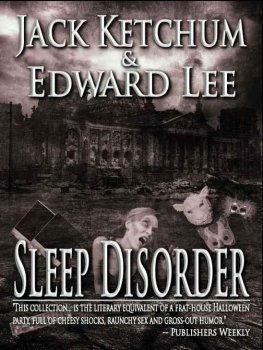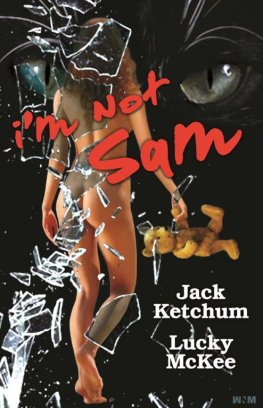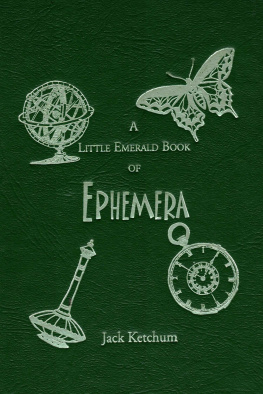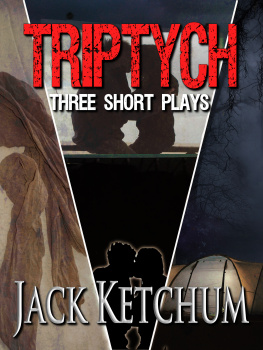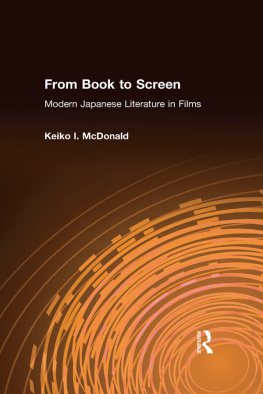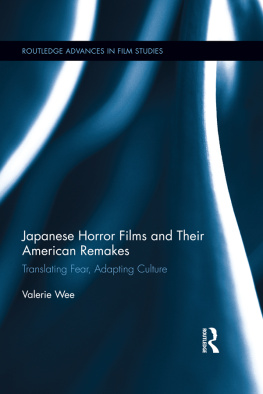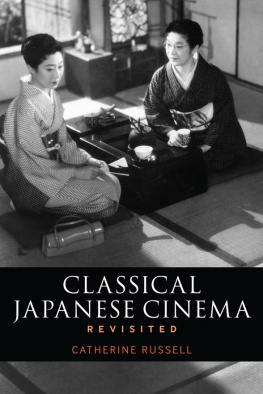TURNING JAPANESE
Articles, 1997 to 2007 , for Asian Cult Cinema
by Jack Ketchum

First Digital Edition published by Crossroad Press
Copyright 201 by Dallas Mayr
Cover image courtesy of the Walters Art Museum
per its release into the public domain
LICENSE NOTES
This eBook is licensed for your personal enjoyment only. This eBook may not be re-sold or given away to other people. If you would like to share this book with another person, please purchase an additional copy for each person you share it with. If youre reading this book and did not purchase it, or it was not purchased for your use only, then you should return to the vendor of your choice and purchase your own copy. Thank you for respecting the hard work of this author.
DISCOVER CROSSROAD PRESS
Visit our online store
Subscribe to our Newsletter
Visit our DIGITAL and AUDIO book blogs for updates and news.
Connect with us on Facebook .
Join our group at Goodreads .
Meet the Author

Jack Ketchums first novel, Off Season , prompted the Village Voice to publicly scold its publisher in print for publishing violent pornography. He personally disagrees but is perfectly happy to let you decide for yourself. His short story The Box won a 1994 Bram Stoker Award from the HWA, his story Gone won again in 2000 and in 2003 he won Stokers for both best collection for Peaceable Kingdom and best long fiction for Closing Time . He has written twelve novels, arguably thirteen, five of which have been filmed The Girl Next Door , Red , The Lost , Offspring and The Woman , written with Lucky McKee. His stories are collected in The Exit at Toledo Blade Boulevard , Peaceable Kingdom , Closing Time and Other Stories , and Sleep Disorder , with Edward Lee. His horror-western novella The Crossings was cited by Stephen King in his speech at the 2003 National Book Awards. He was elected Grand Master for the 2011 World Horror Convention.
Book List
Novels:
Hide and Seek
Joyride
Ladies Night
Off Season
Offspring
Red
She Wakes
Stranglehold
The Girl Next Door
The Lost
The Woman (with Lucky McKee)
Novellas:
Im Not Sam (with Lucky McKee)
Old Flames
Right to Life
The Crossings
Non-Fiction:
Book of Souls
Collections:
Broken on the Wheel of Sex
Closing Time and Other Stories
Peaceable Kingdom
Sleep Disorder With Edward Lee
The Exit at Toledo Blade Boulevard
Authors Website
Table of Contents
For Thomas and Yuko Weisser.
INTRODUCTION
B ack in 97 Tom Weisser contacted me with the notion of my writing about a particular type of film for Asian Cult Cinema Magazine now sadly defunct except for the online store and website, and much lamented. At least by those of us whove come to love extreme weirdness from the East.
Hed read THE GIRL NEXT DOOR and OFF SEASON and some of my other stuff and thought that a good pairing would be me and some director called Matsumura, who Id never heard of and for whom, as it turned out, I was totally unprepared.
At first I was hesitant. As I wrote in the essay which follows, all I knew about Japanese cinema was Kurosawa and fire-breathing guys in dinosaur suits. Tom said listen, youre going to like this director, I promise. This guy is right up your alley.
I said send me the films. Well see.
Next thing I know, Im glued to the VCR.
Not only did I like Matsumuras work, I loved it. I thought it was some of the most bold, outlandish, courageous filmmaking Id ever seen. Maybe the most courageous.
No way he could have funded it here. Not even as an independent. And mainstream Hollywood would have tried to burn him at the stake.
I had to wonder, were there more like him out there somewhere? Was that even possible? Or was he one of a kind?
Who were these Japanese?
The answer turned out to be that yes, Matsumura was one of a kind. And that yes, there were indeed more out there like him too. Guys who were willing to push the edge of the envelope in places we Westerners didnt even know we had envelopes.
But going to extremes, exploring dangerous passages, is only part of the picture when you start dipping into these movies. You watch the really good ones, from Japan or China or Korea, you get to realize very quickly how isolated some of our Western sensibilities are from the rest of the worlds. You wonder if theyre sometimes as puzzled by us, as we are by them. But you also get to realize how much were alike. How many concerns we share. Not just on matters of sex and violence. But loneliness, loss, isolation, fear.
And what cracks us up, what makes us laugh out loud.
Tom sent me more films after the first three by Matsumura and they were always to my taste. Wed never met, but he knew me well, all right. I wrote about them five more times for the magazine before it folded, but he sent me quite a few more than that. Enough so that I developed not only a taste for the stuff, but a hunger for more that has lasted to this day.
The proof is all over my Netflix list.
So thank you, Mr. Weisser, for taking me fishing in unfamiliar waters, and helping me catch some of the big ones.
Jack Ketchum, 3/26/13
THAT SMILE: The Films of Katsuya Matsumura
ALL NIGHT LONG
ALL NIGHT LONG 2: ATROCITY
ALL NIGHT LONG 3: ATROCITIES
By Jack Ketchum
W hats the first thing you do when you embrace your potential for evil?
You smile .
Of course by then youre pretty much a goner. To have violence on the mind is to fry the brain.
It burns too hot.
Thats the way Katsuya Matsumura sees the world and I cant say I dont agree.
I should probably make a confession, though, right off. When I was a boy I dragged my dad to see GODZILLA and RODAN at a New Jersey drive-in. Then in college I saw THE SEVEN SAMURAI in a Boston art-house. I doubt Ive missed a Kurosawa film since. And Ive caught a few other Japanese films here and there over the years but basically thats what I know about Japanese cinema big rubber monsters beating the shit out of Tokyo and high filmic art.
What I do know a little bit about is horror.
And these three films mean to hurt you. Theyre scary .
Were not talking GODZILLA-type scary. GODZILLAs for genre fans and ten-year-olds. Nothing at all wrong with that in my book, but the ALL NIGHT series is a far more ferocious animal, inhabiting a far less civilized space where everything is permitted, where theres no moral ground, where the center always comes unstuck.
So I feel pretty comfortable writing about them. Because you dont have to know about Japanese cinema to recognized a serious take on the nature and effects of violence when you see one, wherever and however the scenario happens to be played out. I suggest that a hornets nest is a hornets nest no matter where its buzzing and pilgrim, youd better move on.
Heres the way they play out.
In the first movie, three teenage boys see a girl brutally stabbed to death at a railroad crossing so brutally by the way that even the camera-lens gets splattered with gore. Cant remember seeing anything like that before except maybe seawater in FREE WILLY.
(Note: writing in 2013, the scenes been ripped off several times since.)
Ones a vocational student who wants to be an airline mechanic but hasnt got the grades, ones a rich kid who dreams of suicide, and ones exceedingly smart and college-bound, a nerd down to the bone.

